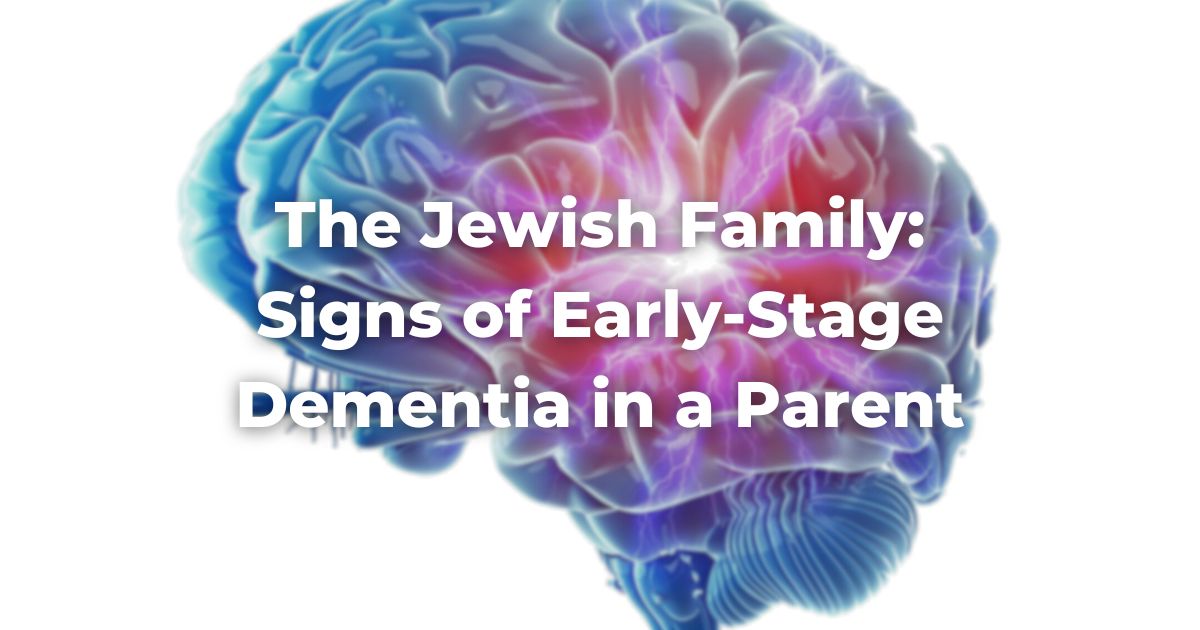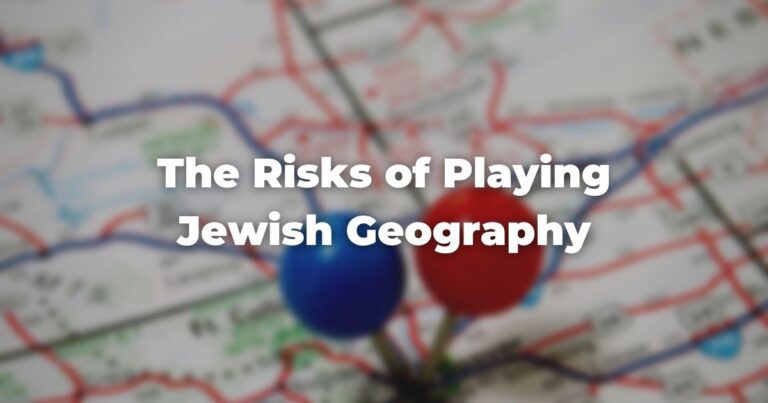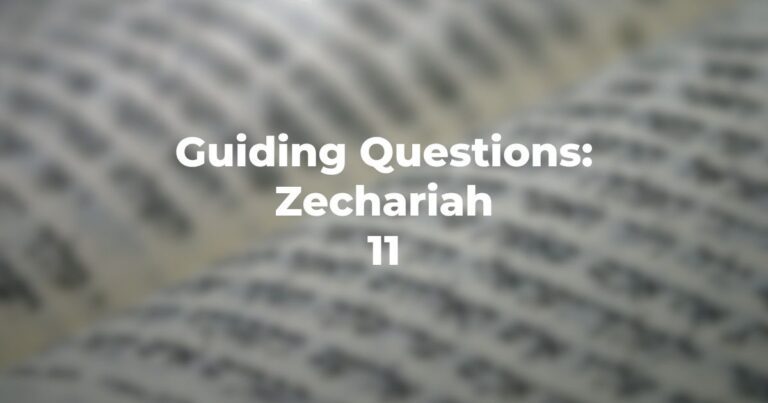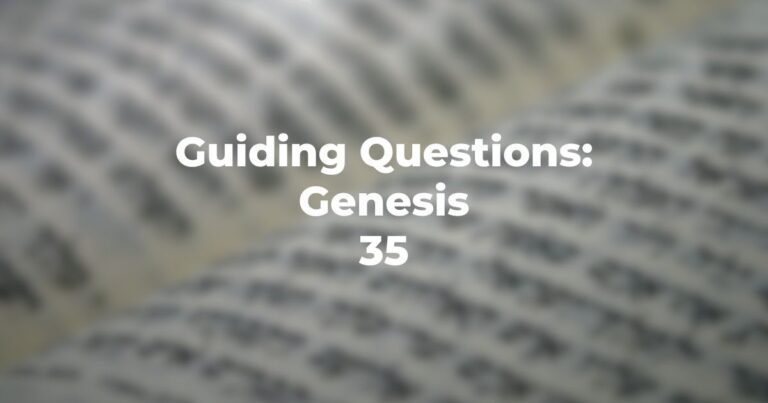Dementia is a horror for anyone—for the person facing its early signs, for their family, and for anybody it touches. Reversing Exodus 3:8, when Israelites left the cruel land of Egypt for a land flowing with milk and honey, dementia takes a fully-functioning person and puts them in the most desolate of deserts.
Adult children of a person with Early-Stage Dementia (ESD) face a particularly difficult challenge. They are sensitive to the changes in their parent, even as they remain the child in the child-parent relationship, seeking guidance in this new desert.
The challenge of confusion in parent-child relationships is as old as the TorahRefers to the first five books of the Hebrew Bible, the Tanakh, also called the Five Books of Moses, Pentateuch or the Hebrew equivalent, Humash. This is also called the Written Torah. The term may also refer to teachings that expound on Jewish tradition. Read more. When blind Isaac was approached by one of his sons, he hesitated: “The voice is the voice of Jacob, but the hands are the hands of Esau” (Genesis 27:22). Everybody changes with time; this story illuminates the extraordinary difficulty of changes so extreme that people become unrecognizable—both Isaac, through his age, and his sons, through the ways they changed in response, to honor or deceive him.
One of the most difficult parts of being the child of a parent with ESD is to disconnect from the existing child-parent relationship as much as possible, and to move to new definitions of these roles. For a child to watch their parent deteriorate is a devastating form of loss.
The Development of Dementia as a Parent
When children first enter into this experience with their parent, they might try to emphasize encouragement. My children’s encouragement after my diagnosis was very valuable, and at the same time, the reality of dementia was very present and heavy for me. At first, I felt that my children’s living-oriented approach was in conflict with the dying-oriented approach I frequently sank into.
With time, I came to realize that both living and dying were present in me, and that they were actually interacting with each other—my dying was making my living more immediate, and my living was making my dying more meaningful. I came to see it as though they were dancing a duet, for which I was playing the music! The Living~Dying Duet became an important part of how I relate to dementia and live my life, including the full spirit of the way my children were relating to me and to my condition.
Dealing with Dementia: Guidance from the Torah
It was important for me on my dementia journey, as well as for my children, to learn from the wisdom of our religion. As I read the Torah portion from a dementia perspective, I was astonished to find, every single week, a passage that sounded to me like it was written about dementia! In Beha’alotcha, for example, Moses becomes a kind of dementia caregiver for the people of Israel, navigating their increasingly challenging behavior (the Torah’s advice: get help!).
Even the very first five verses of the Torah, the creation of the universe, reflect the onset of dementia:
Verse 1: At first things were regular—sky and earth.
Verse 2: With dementia, the world turns dark, with only glimmers of light.
Verse 3: Slowly, one realizes that they still have life to live.
Verse 4: One becomes aware of the light of living, and the terrible darkness of dementia.
Verse 5: One realizes that the two parts of life are not separate, but that life and death are continually dancing a duet within them.
I explore each parsha’s connections to dementia at DementiaInTheTorah.com.
For families affected by ESD, this Torah-dementia connection provides both a feeling of support from the Jewish sources and specific guidance on relating to dementia.
Support for the Child of a Parent with Dementia
The child of a parent with ESD needs support, too. The first step is to say the words “I need help.” Understanding that the situation is too large to be handled alone opens the door to being able to seek support.
Support groups have been invaluable for me and my family. Talking to other people in virtually the same situation helps us realize we are not alone, and in many cases also provides practical wisdom. Sessions with a person who works with families affected by dementia, or with a person who has dementia themselves, can offer vital perspectives.
Dementia: A Community Call for Action
With the intense demands that fall on the child of a parent with ESD, and the breakdown of the life-patterns that had previously been in place, the child needs a structure for building their new life.
The book of Exodus beautifully describes this reorientation. As the people of Israel came out of Egypt and found themselves in the desert, they experienced a new life in which “the pillar of cloud by day, and the pillar of fire by night, departed not from before the people” (Exodus 13:22).
In their journey in the desert of dementia, families need to be wrapped in a cloud of communal support, to be guided by a bright beacon that lights their way even in the darkness of dementia, and to unify themselves as people together in this difficult journey through the desert.
This is a clarion call for members of the Conservative/Masorti movement. We must build lives like the people of Israel in the desert: wrapping community members with dementia, and their families, in clouds of communal support and social integration.
This means offering:
- Support groups and other forms of guidance for families and caregivers;
- Educational programs to help light these members’ path;
- Community events to unify ourselves with activities that raise awareness and conversation about dementia within our own community.
The Erev Program describes how this was done in one Jewish community, and provides links to resources for people with ESD, their families, and their communities. With these steps, the Conservative/Masorti movement can help families touched by dementia build their lives in their new reality.
Dementia may feel like a hostile desert—but Jewish tradition is rich with wisdom about navigating deserts. Even in the wilderness, we are guided and sheltered by a pillar of cloud.
This essay was submitted as part of Exploring Judaism’s L’Dor V’Dor Essay Contest. To learn more, or submit your own essay, go here.
Author
-

Wally grew up in the Conservative/Masorti Movement in the Midwest, and then lived in Israel for thirty years. Following his diagnosis with Early-Stage Dementia at Hadassah Hospital in Jerusalem, Wally moved to Denver and has been active in raising awareness and conversation about dementia in the Denver-Boulder Jewish community. As his dementia condition has developed Wally has paid a great deal of attention to his preparations for what is to come, both for himself and for his family. Wally deeply appreciates the Conservative/Masorti Movement being very open and supportive in this process.
View all posts





